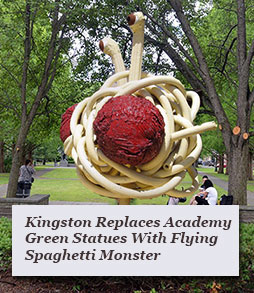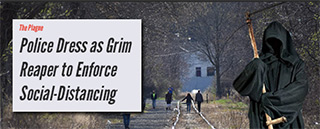
KINGSTON- Sweeping new EPA regulations announced earlier today would protect Kingston’s potholes as “lush oases of amphibian life in an urban setting.” As a result of the regulations, the 745 potholes within city limits “are, and henceforth shall be, forever wild” and will never be filled in.
“Kingston’s pot holes were not consciously created to serve as wildlife habitat,” said EPA Regional Administrator Carolyn Smith. “But nature often exploits gaps when mankind desserts them. In the case of the Chernobyl Wildlife Refuge, it was a nuclear power plant meltdown. Here, it was year of neglect in road maintenance.”
Smith said a survey conducted by the Cary Institute of Ecosystem Studies found 11 different species of frogs and 10 salamander species in the city’s potholes, including several not normally found in New York State, two of them critically endangered. “We believe some some eggs may have hitched a ride in the tires or chassis of cars,” said DEC Region 3 Wildlife Biologist Rick Harris. “But we’re not ruling out migration.”
Harris said the potholes seem to be providing a similar role as vernal pools, which offer younger amphibians protection from predators lurking in larger, permanent bodies of water. “But those pools dry up in the summer. The pot holes could in theory remain full all year and if they continue growing, could eventually support a greater array of large species, including turtles, bass, sturgeon, muskrats, even seals.”
As a result of the new designation, motorists will face federal fines of $10,000 each time they drive through a pot hole.
Kingston Mayor Steve Abelard greeted the news effervescently in a Facebook livestream.
“Not only does will this designation protect Kingston’s precious amphibians, it will also reduce our DPW budget,” he said. “We can use that money for anything we like. A new rail trail perhaps.”




